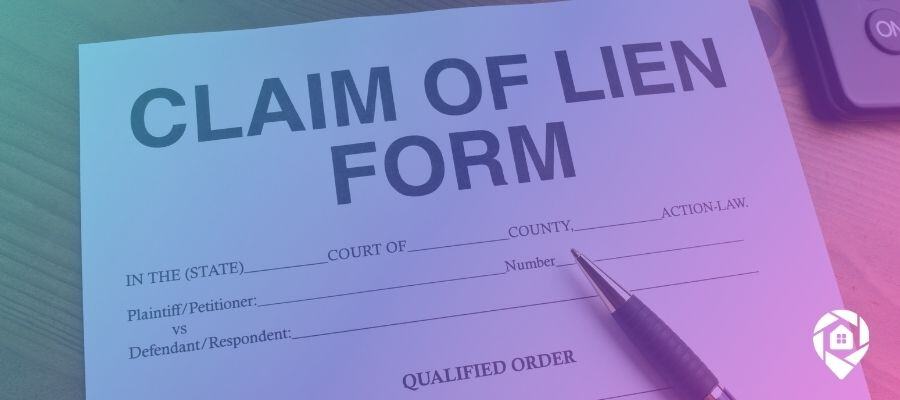
Mastering Mechanic's Liens in Real Estate Investing

When it comes to the world of real estate investing, the devil is often in the details and one such detail that tends to be overlooked is a mechanic's lien.
Commonly referred to as a construction lien, the purpose of this legal claim is to ensure that those who work in the construction industry – be it builders, contractors or construction firms – are appropriately compensated for their services. Understanding the intricacies of a mechanic's lien is vital for every real estate investor, specifically when the contractor fails to pay their subcontractors or suppliers.
What is a Mechanic's Lien
So, what exactly is a mechanic's lien in real estate and why does it hold such importance? Let's dive deep for a wholesome understanding of a mechanic's lien.
In the simplest terms, a mechanic's lien is a legal tool that is designed to protect workers and suppliers. It is usually used when a property owner has unpaid bills from a construction project. Though it varies from state to state, typically, when a lien is placed on a property, it gets attached to the title of the property. This means, until the lien is paid off, it may very well affect the owner’s ability to sell or refinance the property.
The Process of Filing a Mechanic's Lien
The process of filing a mechanic's or construction lien involves several steps. First, the unpaid party must provide a preliminary notice to the property owner. This is essentially a formal document that highlights the unpaid services or materials. If the owed party fails to receive payment, then the mechanic's lien may be officially filed with the county recorder.
Impact of a Mechanic's Lien
Like any legal provision, the impact of a mechanic's lien can be profound for both property owners and real estate investors. For owners, a mechanic's lien can cloud the title of your property - making it difficult to benefit from the sale or refinancing.
If you are a real estate investor, it could complicate the resale process and even discourage potential buyers. This is why understanding the mechanic's lien concept becomes paramount for anyone venturing into the world of real estate.
Liens for Real Estate Wholesaler's
For real estate wholesalers, understanding mechanic's liens is crucial for managing risk and ensuring smooth transactions. As intermediaries who contract a property with a seller and then assign that contract to an end buyer, wholesalers must be vigilant about mechanic's liens.
A property encumbered by a construction lien can be a significant red flag for potential cash buyers, potentially derailing a deal. Wholesalers should conduct thorough due diligence to ascertain if there are any outstanding liens on a property before they enter into a contract.
Additionally, they should educate both the sellers and the end buyers about the implications of such liens. It's wise for wholesalers to include contingencies in their contracts that protect them against unforeseen liens. Staying informed and proactive about mechanic's liens helps wholesalers maintain their reputation and avoid legal complications in their transactions.
Liens for House Flippers
Real estate flippers, who purchase properties to renovate and sell for profit, should be particularly aware of mechanic's liens. Flippers often rely on contractors for renovations, making them susceptible to liens if disputes arise over payment.
A construction lien can not only stall the sale of a renovated property but also impact the flipper's return on investment. To mitigate these risks, flippers should ensure clear contracts with their contractors, specifying payment terms and conditions. It's also beneficial to request lien waivers from contractors upon completion of work and payment, which serves as a receipt and releases any lien rights against the property.
Keeping meticulous records of all payments and contracts can also aid in resolving any disputes swiftly. Ultimately, a proactive approach in managing relationships with contractors and understanding the nuances of mechanic's liens is essential for successful real estate flipping.
Effectively Handling the Lien
If a mechanic's lien has been filed on your property, handling it efficiently is crucial. Proper understanding and application of a lien waiver can be a lifesaver in such situations. The first line of defense is always prevention - clear contracts and prompt payment can save you a lot of trouble in the future.
However, if you find yourself dealing with a lien, don't despair. One common remedy comes in the form of enforcing the lien. The lienholder can enforce the lien by either initiating a lawsuit or by forcing a sale of the property to satisfy the lien.
But, this should be seen as a last resort, it's costly, time-consuming and can severely harm business relationships. It is always advisable to seek immediate, professional legal help if you find yourself dealing with a mechanic's lien or if a contractor has failed to pay their subcontractors or suppliers.
Conclusion
Understandably, the world of mechanic's liens can be overwhelming. However, remember, knowledge is power, and understanding the mechanics of a mechanic's lien - from knowing when to file one to understanding how to efficiently utilize a lien waiver - is crucial when navigating the treacherous waters of real estate investing.
Knowing about these legal tools is just as important as knowing about other aspects of your investment, such as property value and location. So, remember to always stay informed and consult with a legal professional whenever dealing with complex issues such as mechanic's liens. And of course, share this important information with those in your network. Knowledge shared is knowledge multiplied.

About Samantha Ankney
Samantha is the Social Media Manager at DealMachine, where she oversees all social media strategies and content creation. With 4 years of experience at the company, she originally joined as a Media Specialist, leveraging her skills to enhance DealMachine's digital presence. Passionate about connecting with the community and driving engagement, Samantha is dedicated to sharing valuable insights and updates across all platforms.



